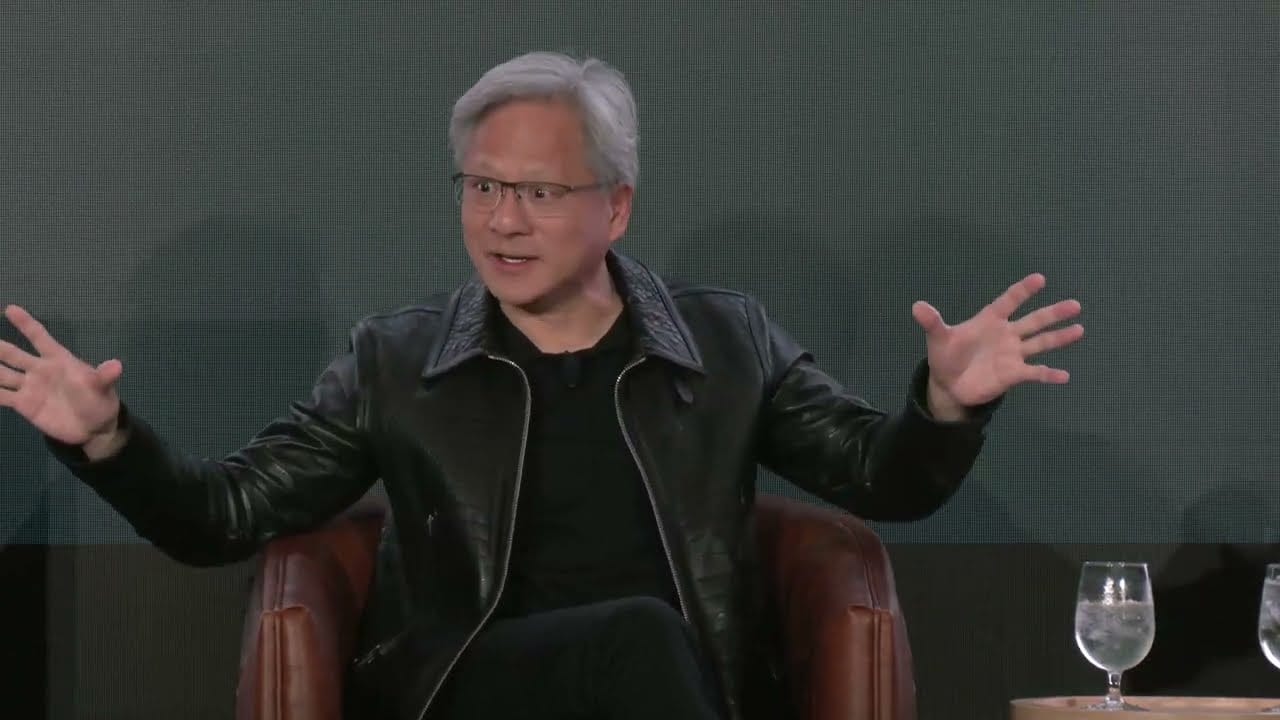Jensen Huang defends to the media that AI hardware is impossible to divert, while Malaysia adopts Huawei GPUs
During his speech at COMPUTEX 2025 held in Taipei, NVIDIA CEO Jensen Huang firmly responded to accusations of diverting artificial intelligence (AI) chips to China. In a press conference reported by Bloomberg, the tech company’s leader stated that “there is no evidence of any AI chip diversion” and dismissed the physical possibility of such an occurrence, referring to the enormous size and weight of their data center systems.
“Our systems are huge. The Grace Blackwell system, for example, weighs nearly two tons. You can’t just put them in a backpack,” Huang joked. According to the executive, purchasing governments and companies “self-regulate very carefully” because they know that a diversion would hinder future acquisitions of NVIDIA technology.
An indirect response to the Trump administration
Huang’s statements come at a time of increasing tension between the United States and China, with former president Donald Trump publicly accusing Malaysia of acting as an intermediary in the alleged diversion of GPUs to the giant Asian market. Washington is reportedly preparing legislation to require geolocation and remote disabling systems in advanced chips as a measure to control their final destination.
Although Huang avoided directly mentioning China during his talk, his words are understood as a reply to accusations that have put both NVIDIA and Southeast Asian countries in the spotlight. However, foreign trade data partly supports these suspicions: recent reports indicate that GPU imports in Malaysia have skyrocketed by an astonishing 3,400% in the past two years.
Malaysia, a new Huawei client for AI data centers
The controversy was further fueled this Tuesday when it was revealed that Malaysia will be the first country outside of China to adopt Huawei’s Ascend GPUs for its data centers. This shift comes after an alleged —but not officially confirmed— ban by the U.S. on NVIDIA selling its AI GPUs in Malaysian territory. Huawei, for its part, will leverage this opportunity to deploy its infrastructure with the help of the DeepSeek language model, reinforcing its strategy for international expansion.
Is NVIDIA playing a risky game?
Malaysia’s and Huawei’s moves appear to challenge NVIDIA’s narrative. While technically it’s difficult to divert complete AI systems without detection, the volume of exports and geopolitical pressure could force new regulations.
The Trump administration, with Donald Trump once again at the center of electoral and legislative debate, has already indicated its intention to implement stricter controls. If suspicions persist, NVIDIA could face not only sanctions but also a loss of access to key markets in the Asian environment.
Meanwhile, NVIDIA’s CEO insists that his company acts with transparency and responsibility. But in a context where AI has become a strategic weapon of utmost importance, every move —and every silence— matters.
References: Bloomberg and El chapuzas informático

